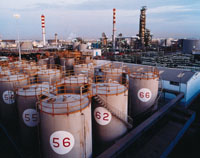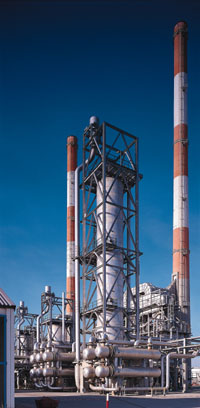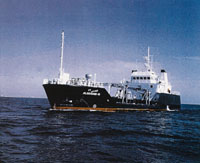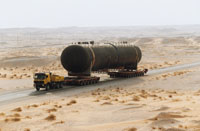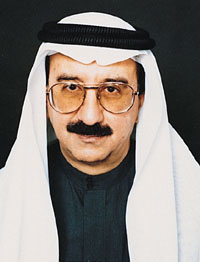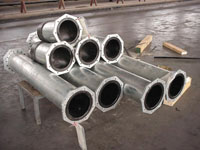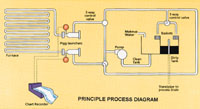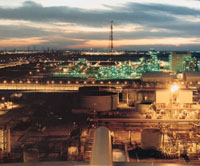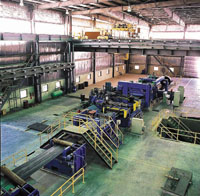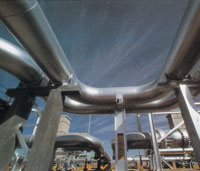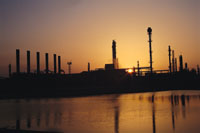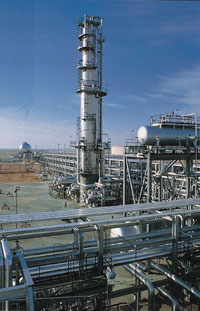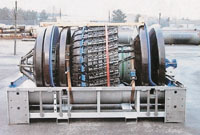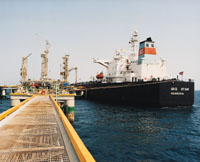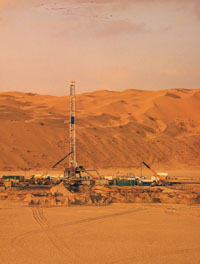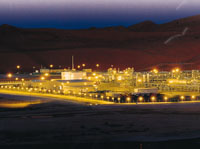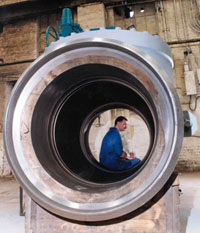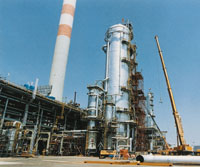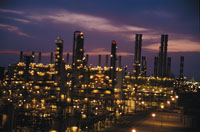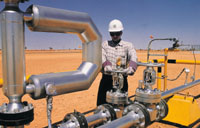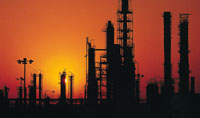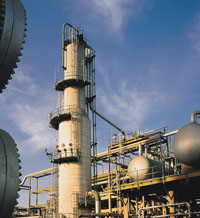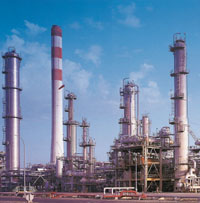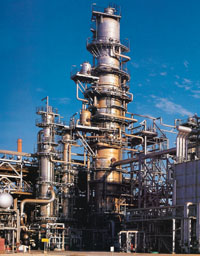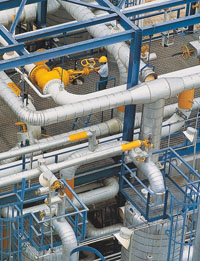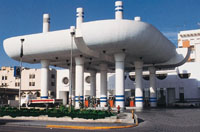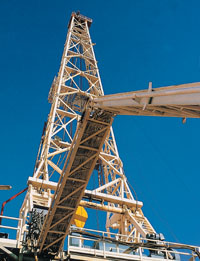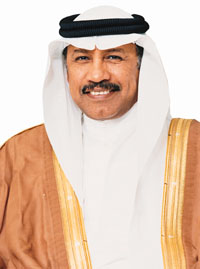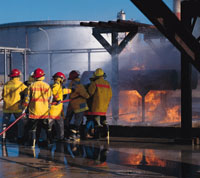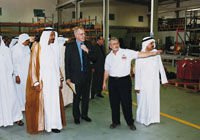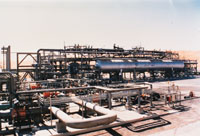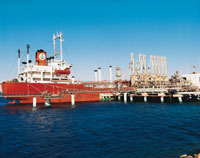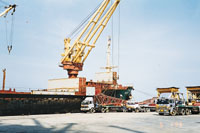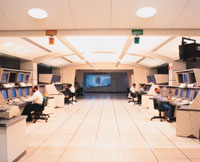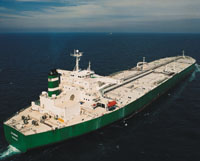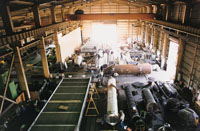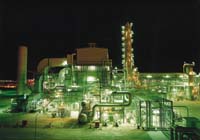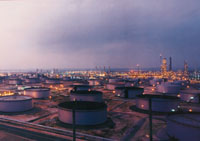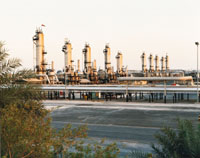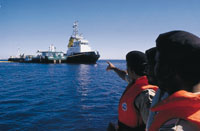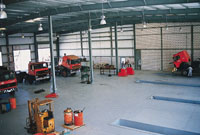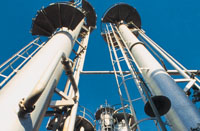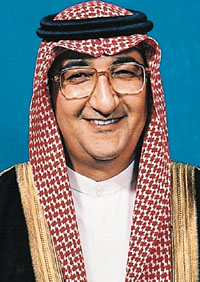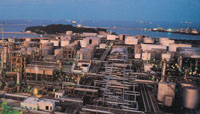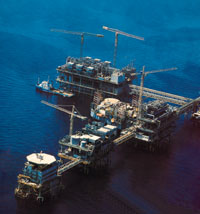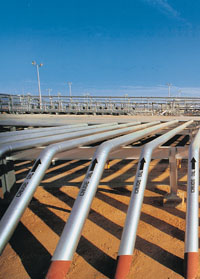
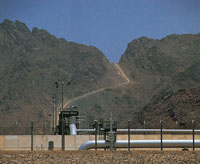
Gas is to be the fuel of future industrial development in the Kingdom and soaring demand will provide major investment opportunities, according to Adviser to the Ministry of Petroleum and Mineral Resources Prince Faisal bin Turki. Gas is seen as a major opportunity for development for international companies in Saudi Arabia, Prince Faisal bin Turki told the World Petroleum Congress in Calgary.
The Kingdom is maximising the economic and social benefits from its natural gas resources, and has developed a long term strategy to harness this resource.
Three specific targets have been identified with regards to Saudi Arabia's gas reserves: firstly, to meet domestic demand for gas and optimise ethane and NGL utilisation up to 2025 and beyond; second, to identify the ultimate economically-recoverable gas reserves of Saudi Arabia and, thirdly, to identify the appropriate near-term actions which allow the ongoing timely development of the gas sector.
The Kingdom's vision is the development of a self-sufficient, fully integrated industry capable of providing gas to the Saudi economy at competitive prices.
''This will help diversify sources of income by supporting a thriving industry at the core of which is petrochemicals, and by helping provide water and electricity to a prospering Saudi society,'' said the Prince.
The Kingdom's proven reserves of associated and non-associated gas have been estimated at approximately 210 trillion cu ft, and studies indicate that significant additional reserves from new discoveries are highly probable.
While a programme for utilising associated gas has already been implemented as the Master Gas System (MGS), domestic demand is still growing rapidly.
''As domestic gas demand continues to grow, it is evident that incremental supplies will have to be derived increasingly from non-associated gasfields,'' said the Prince.
''Based on our demand analysis, it is estimated that domestic gas demand may rise to 6.8 billion cu ft per day in 2005 and to 8.2 billion cu ft per day in 2012.
To meet these demand increases, a comprehensive plan has been developed for the Kingdom to provide sufficient gas supply to meet demand to 2025 and beyond. The plan optimises gas supplies and capital expenditures for the Kingdom's gas resources while minimising unit costs of future sustainable production levels.
''To develop to Kingdom's gas reserves over the coming quarter of a century will cost an estimated $44 billion, including downstream treatment and fractionation facilities, and the infrastructure needed to process the added supplies,'' said Prince Faisal.
''In addition to meeting gas demand until 2025, the plan calls for increasing our ethane production capacity by 505 million cu ft per day by 2009. Production capacity of NGL will also increase significantly. It is worth mentioning, however, that thanks to our diligent exploration efforts, we have been adding six trillion cu ft annually to our gas reserves over the last five years.''
Incremental gas supplies will be channeled to five sectors - electricity generation, petrochemicals, water desalination, oil and other industries. Selection of projects that utilise gas will be subject to a set of criteria which take into account the project's feasibility, contribution to the economy, contribution to infrastructure and diversification, production efficiency and technology transfer of the project under consideration.
''As we continue to diversify our economy and create more jobs, Saudi Arabia will also continue to provide its industrial sector with a steady supply of energy at reasonable prices,'' explained the Prince.
''The industrial sector's share of the Kingdom's total gross domestic product (GDP) was about six per cent in 1998, half of which was accounted for by the petrochemical industry.
''Looking at only non-oil GDP, the share of industry and petrochemicals is 10 per cent and five per cent respectively.
''Higher shares for those sectors are sought in the future, in accordance with the Kingdom's development plans,'' added Prince Faisal.
Bearing in mind these remarkable contributions to the Saudi economy, the benefits of using its gas domestically far outweigh the benefits of exporting it abroad. Consequently, the export option for liquefied natural gas (LNG) has, for the time being, been ruled out, though this does not apply to the export of NGL, the Prince explained.
Saudi Arabia is currently implementing a series of measures aimed at accelerating the development of the nation's economy. These include the formation of the Supreme Council of Petroleum and Minerals, the formation of the Supreme Council of Economic Affairs, the enactment of a new foreign investment code and the establishment of an Investment Authority.
Consistent with these measures, the Kingdom has invited international petroleum companies to submit investment proposals which are beneficial to both the country and companies.
''The invitation was met with significant enthusiasm and the resulting submissions covered areas of mutual benefit such as investment in the gas industry, the downstream oil industry, industrial infrastructure, power generation, water desalination, petrochemicals and energy-intensive industry,'' said Prince Faisal.
''The Kingdom is converting these proposals into identifiable investment opportunities for companies to pursue.''
Guidelines under which the investments are to be carried out include:



















































































